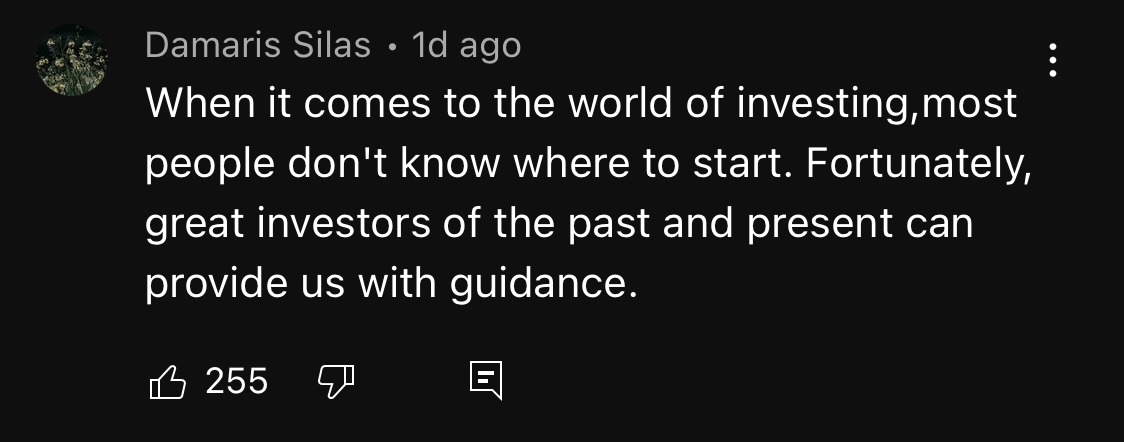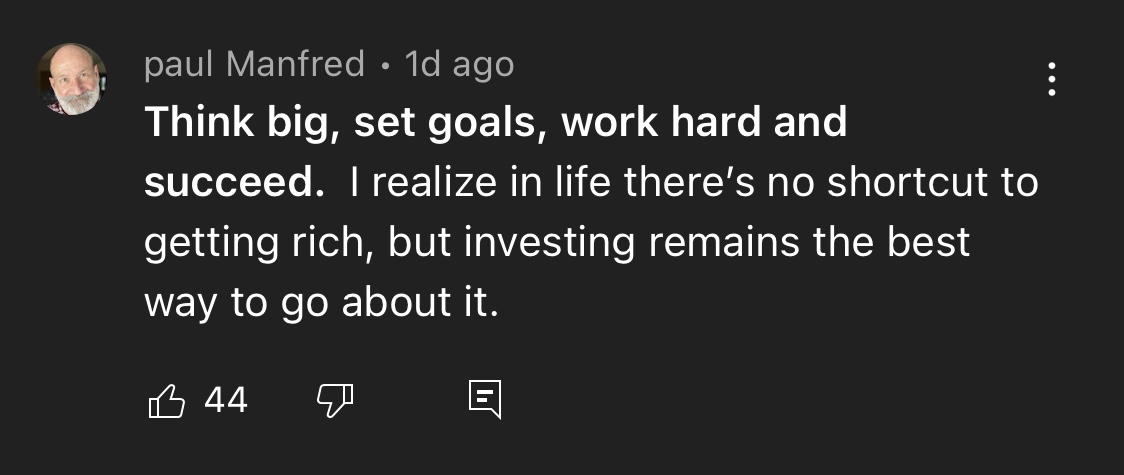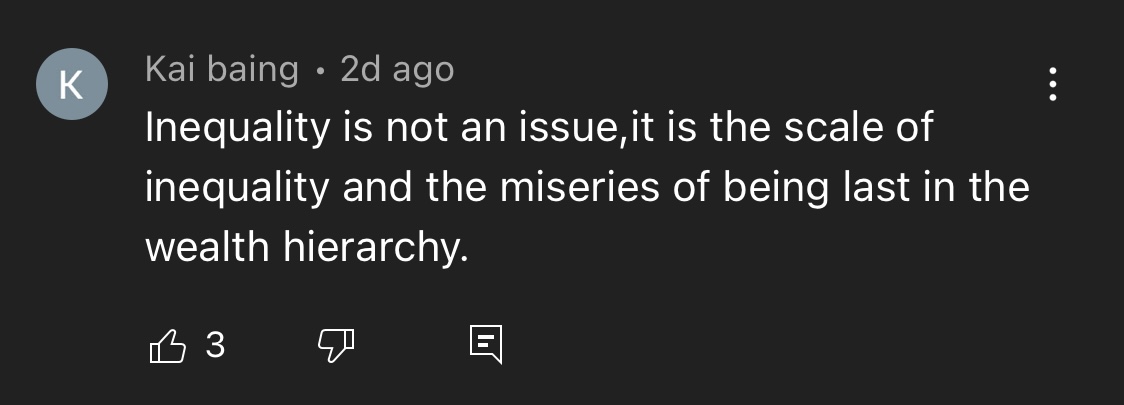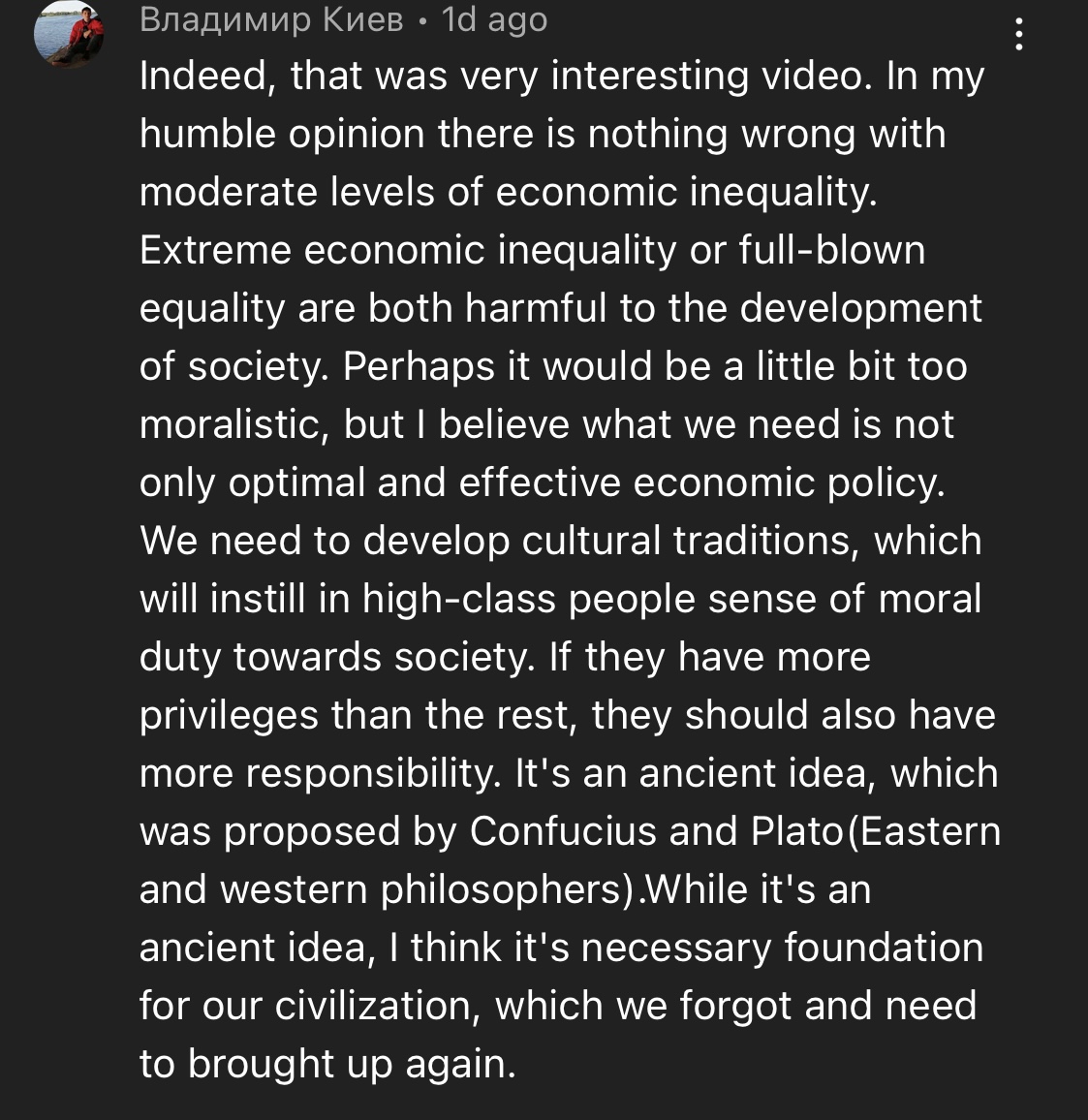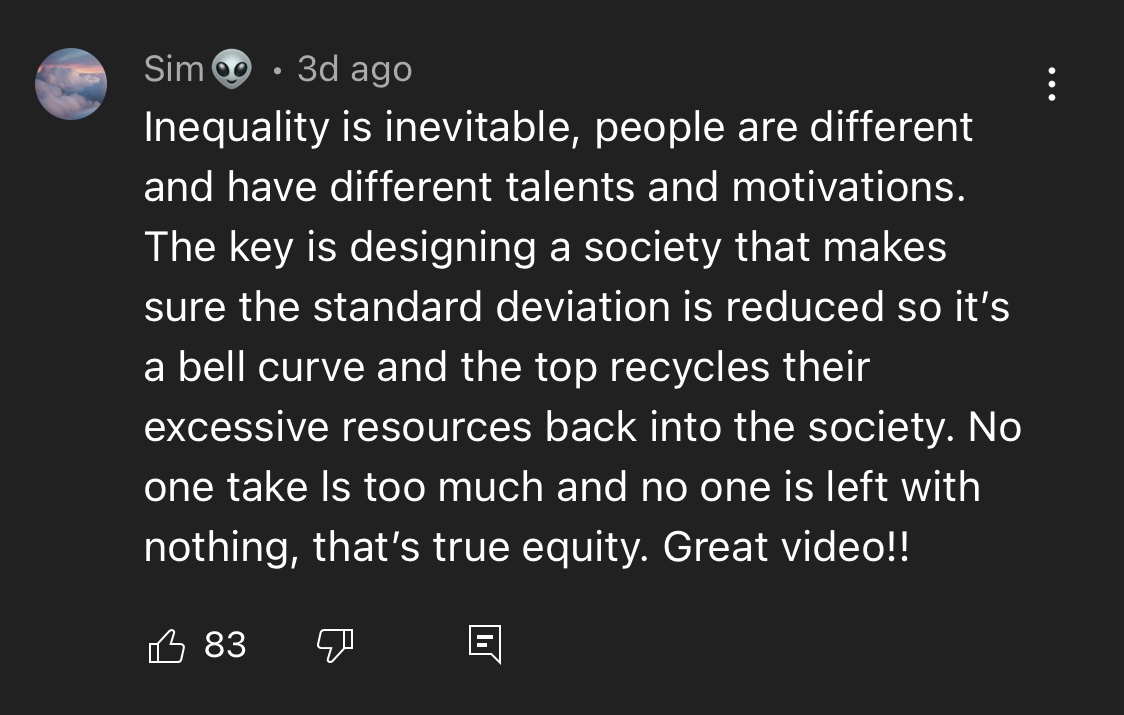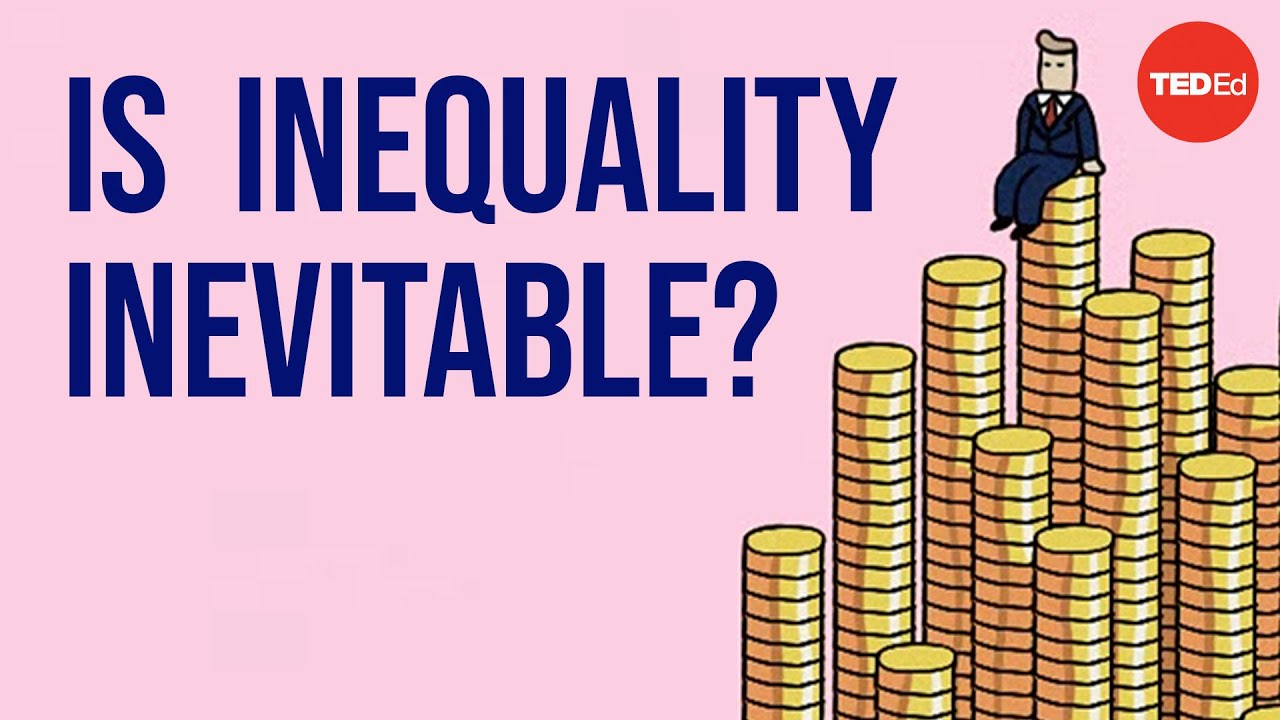The TED edutainment industrial complex must be stopped.
Contains standard (neo)liberal propaganda so I don’t really see the need to ‘debunk’. Just watch and laugh.
This video and the comments pissed me off so I’m going to quote the important bits so y’all don’t suffer. I put the quotes under spoilers to save space:
INEQUALITY
Income and wealth inequality are not new. In fact, economists and historians who’ve charted economic inequality throughout history haven’t found a single society without it. Which raises a bleak question: is inequality inevitable?
This line of thinking is what leads to complacency and apathy. Inequality is natural and therefore nothing will change. Some people are just inherently better than others. Historically there were egalitarian societies, even recently. The real life Lord Of The Flies: 1965-1966 a group of young boys were shipwrecked on an island and survived 15 months by establishing a productive system of chores (farming and general survival stuff) and vowing to never quarrel. If the had spats, instead of escalating they’d time-out to calm down and return to discuss. So the exact opposite of what happened in the fictional book.
GINI INDEX
One way to estimate inequality is with a number called the Gini index, which is calculated by comparing the income or wealth distribution of a perfectly equal society to the actual income or wealth distribution.
Corrado Gini was an Italian statistician, demographer and sociologist who developed the Gini coefficient, a measure of the income inequality in a society. Gini was a proponent of organicism and applied it to nations. Gini was a eugenicist, and prior to and during World War II, he was an advocate of Italian Fascism.
Whoopsie! It’s fascism! They don’t mention this in the video lol
MORE GINI
A Gini of 1 indicates perfect inequality-one person has everything and everyone else has nothing. You’d never see this in real life because everyone except that one person would starve. A Gini index of 0 indicates perfect equality. everyone has exactly the same income or wealth. But you also never see this in real life, not even in communist countries, because for one thing, that would mean paying everyone- no matter how young, old, what job they’re in or where they work- the exact same wage.
Correct me if I’m wrong, but I don’t remember Marx talking about paying children…
GINI IS FAKE
Before we go any further, you should know what the Gini index - or any other measure of economic inequality- doesn’t tell us: it gives no information about how income and wealth are distributed across genders, races, educational backgrounds or other demographics; it doesn’t tell us how easy or difficult it is to escape poverty. And it also gives no insight as to how a particular society arrived at its present level of inequality.
So it’s essentially useless I guess.
NUANCE NEEDED
Economic inequality is deeply entangled with other types of inequality: for example, generations of discrimination, imperialism, and colonialism created deeply rooted power and class inequalities that persist to this day. But we still need at least a rough measure of who gets how much in a country. That’s what the Gini index gives us.
Why are you surprised that a fascist made system doesn’t actually give an accurate account of human society?
GOVERNMENT
Some countries are, economically, much more unequal than others. And that’s because a significant portion of economic inequality is the result of choices that governments make. Let’s talk about some of these choices.
Uh oh. Here we go…
RED SCARE
First: what kind of economy to use. In the 20th century, some countries switched to socialism or communism for a variety of reasons, including reducing economic inequality. These changes did dramatically reduce economic inequality in the two largest non-capitalist economies, China and the Soviet Union- especially in the Soviet Union. But neither country prospered as much as the world’s leading economies.
They weren’t as prosperous as the “world leading economies”? China??? Also the Soviets literally fast tracked industrialization to defeat the Nazis and suffered the most losses. Then when WWII ended the west immediately begun its attack on the USSR.
CONT.
So yes, people earned about as much as their neighbors did, but that wasn’t very much. This-and many other issues- contributed to the Soviet Union’s collapse in 1991.
What were the other issues TED SAY IT WHAT WERE THEY
CHINA
And China, to grow more quickly, shifted its economy towards capitalism starting in the late 1970s.
Ok. I’m willing to admit when I don’t know something. Can’t say much about this tidbit but hopefully someone else can.
DUCKS
What about capitalist countries? Can they choose to reduce economic inequality? It’s tempting to think: “no, because the whole point of capitalism is to hoard enough gold coins to be able to dive into them like Scrooge McDuck.”
He says that in a “funny” voice to make this sentiment sound stupid and far fetched but it’s literally true. That’s the whole point.
CHINA BAD
China seems to provide the textbook example of this: after it became more capitalist, its Gini index shot up from under 0.4 to over 0.55.
Oh my god, please leave China alone. Also, doesn’t that kind of prove the point you’re trying to dismiss? So China bad because communism, capitalism good, but China capitalism bad because China bad. OOF
EUROPE
But there are many counter-examples: capitalist countries in which inequality is actually holding steady or decreasing, France has kept its Gini index below 0.32 since 1979. Ireland’s Gini has been trending mostly downward since 1995. The Netherlands and Denmark have kept theirs below 0.28 since the 1980s.
Ah of course it’s Europe. Europe is so perfect unlike other countries. It’s not like Europe has a history of brutal colonialism and imperialism that is still present to this day. That’s absurd.
AMAZING
How do they do it? One way is with taxes.
Yeah that seems to be working out GREAT
TAXES
Personal income taxes in most countries are progressive: the more money you make, the higher your tax rate. And the more progressive your tax system, the more it reduces inequality. So, for example, while pre-tax income inequality in France is roughly the same as it is in the US, post-tax inequality in France is roughly 20% lower. Meanwhile, inheritance taxes can reduce the amount of wealth that a single family can amass over generations. Germany and many other European countries have inheritance or estate taxes that kick in at a few thousand to a few hundred thousand Euros, depending on who’s inheriting. The US, on the other hand, lets you inherit $12 million without paying any federal tax. Another way is with transfers- when the government takes tax revenues from one group of people and gives it to another. For example, Social Security programs tax people who work and use the revenue to support retirees. In Italy, about a quarter of Italians’ disposable household income comes from government transfers. That’s a lot, especially relative to the US, where the figure is just over 5%. A third way is to ensure that everyone has access to things like education and healthcare. A highly educated, healthy workforce can command a higher salary on the market, thus reducing inequality.
This one was too much for me to break down. So what is TED implying? That people in Europe have accessible healthcare and education and therefore they don’t complain about anything? I don’t live in Europe but isn’t high education expensive and the distance between classes very very large?
WIFI
The fourth way is addressing the digital divide: the gap between those who have access to the Internet and those who do not.
We already know why that is. Keeping countries in debt to extract profits, countries that have suffered decades of brutal colonization.
BILLIONAIRES
A fifth way is dealing with extreme wealth. Multibillionaires can buy social media platforms, news outlets, policy think-tanks, perhaps even politicians, and bend them to their will, threatening the very fabric of democracy.
Cool. We’ve been saying this forever. How do you propose we deal with this? Because taxes haven’t done shit. I can think of a few examples of how to solve this problem…
BEZOS, MUSK, GATES
We are just barely scratching the surface of inequality here. We haven’t touched on the drastic divides in who has wealth and who doesn’t; the power structures that prevent social and economic mobility; and the drastic inequality between countries- the fact that, for example, just three Americans have 90 billion more dollars than Egypt, a country of 100 million people.
Wow amazing observation…
FIN
And here’s one final thing to think about: power and wealth are self-reinforcing, which means that equality is not. Left to their own devices, societies tend toward inequality— unless we weaken the feedback loops of wealth and power concentration.
And Scene.
From what I gathered: communism bad, China capitalist because communism bad, Europe good because taxes, billionaires exist; anything else?
Here are some comments I found:
